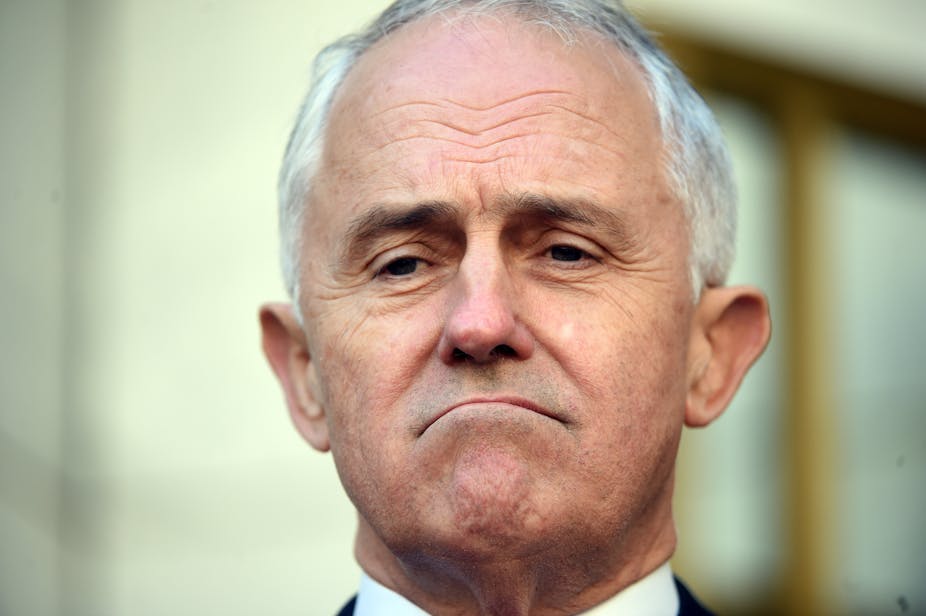The government will still put legislation for a February 11 same-sex marriage plebiscite to the Senate, despite Labor’s confirmation it will oppose the bill.
Prime Minister Malcolm Turnbull told a news conference: “The bill is before the parliament and the parliament has to do its work.”
Despite intense questioning, Turnbull refused to engage with what attitude he would take after the defeat of the bill – specifically, whether he would allow Liberals a free vote on the issue.
But feeling is such among conservatives in the Coalition that it would be near impossible for Turnbull to let a private member’s bill from the opposition or Greens to be allowed to come to a vote.
Victorian Nationals MP Andrew Broad threatened to defect to the crossbench if the Coalition abandoned its commitment to the plebiscite and moved to a free vote. “My support for the government is conditional that we honour our election commitments.”
Labor’s caucus unanimously endorsed opposing the legislation for the plebiscite. The legislation is still to be voted on in the House of Representatives, where it will pass. But there are not enough non-Green crossbenchers willing to support it in the Senate to overcome the opposition of Labor and the Greens.

But Turnbull said: “It is all very well to say the Senate will not vote for it. We respect the Senate. The bill is not even in the Senate yet. The Senate has to deal with the bill.”
Shorten appeared at a news conference in Labor’s caucus room where the front row was filled with young children of LGBTI parents.
He said that in recent weeks he had consulted members of the LGBTI community and mental health experts, including former Australian of the Year Patrick McGorry.
“The experts have unequivocally explained to Labor that the plebiscite would cause harm to gay and lesbian people, particularly but not exclusively young people,” Shorten said.
“Having met these families, having listened to their stories I could not in good conscience recommend to the Labor Party that we support the plebiscite about marriage equality. I could not in good conscience do this because the evidence became overwhelming of the harm it would cause.”
He flagged Labor would continue to push for a parliamentary vote, and said Turnbull should listen to the stories of the families.
He dismissed the argument that Turnbull could not change his mind because of the situation in his ranks. “Just because you have a few National Party MPs threatening to bring down the government – that’s Mr Turnbull’s problem,” he said.
“Mr Turnbull made that bed a long time ago. He has to lie in it now. He signed up to Tony Abbott’s agenda, he signed up to Tony Abbott’s plebiscite. He has to live with his conscience. He has to live with the consequences of proposing to Australia a sub-optimal outcome.”

